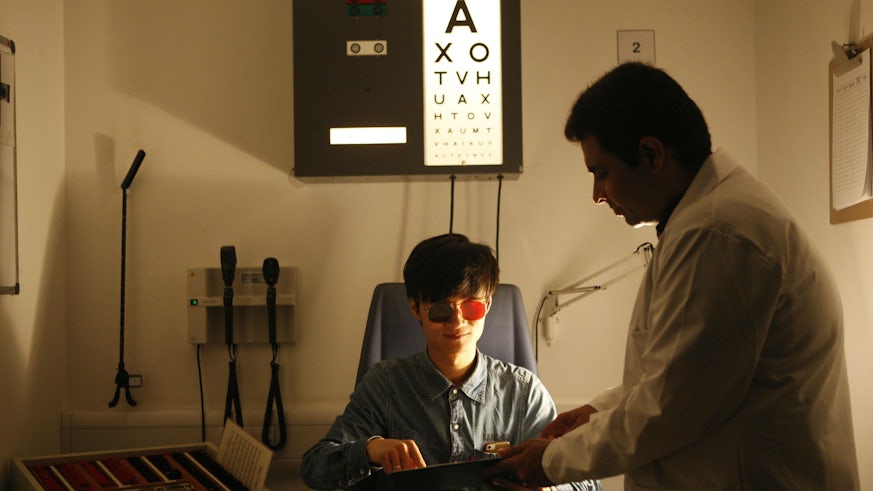Traditional eye screening shown to be ineffective for special schools
21 March 2019

A pioneering report co-authored by Dr Maggie Woodhouse has provided further evidence that traditional eye screening in special schools is ineffective in detecting vision problems for children with learning disabilities. The research, which was funded by the vision charity See Ability, concluded that full eye examinations are a more effective method for detection.
The report aimed to present the findings of an opt-in, school-based eye care service for children attending special schools in England and use these findings to determine whether a vision screening programme would be appropriate for this population. Maggie and colleague Barbara Ryan have already published findings from a small scale study in Wales, but this latest and much larger project extended the survey to England, suggesting that the outcomes apply nation-wide.
Vision screening in the general childhood population improves the identification and correction of reduced vision and is implemented in many countries worldwide. However, there is a body of evidence that children with learning disabilities are significantly more likely to experience eye and vision problems than members of the general childhood population, and children with the most complex needs are likely to be taught in special schools.
The new report revealed that the provision of eye screening in special schools is inconsistent and it is questionable if such screening is suitable for children with complex needs, given that many cannot be assessed using established visual acuity tools. It was therefore recommended that the most effective way to detect problems is a routine full eye examination offered in school for all children attending a special schools.
Dr Woodhouse, who leads the award-winning Down’s syndrome Vision Unit at Cardiff University said: "This is the largest study of vision in children with special needs undertaken globally and demonstrates convincingly that vision screening is inappropriate for these vulnerable children. Vision services must be developed specifically for children with special needs, since they are much more likely to have eye and vision problems than typical children, but are much less able to access the eye care provision currently in place."
This study reports on service evaluation data from an opt-in school based eye care service provided by optometrists, orthoptists and dispensing opticians working with SeeAbility, a UK charity supporting people with learning disability and sight loss, across 11 special schools in England between 2013 and 2017.
Share this story
We are working with a large and enthusiastic group of families to understand more about visual and general development of children with Down's syndrome. Our research has changed eye care practice across the UK and abroad.